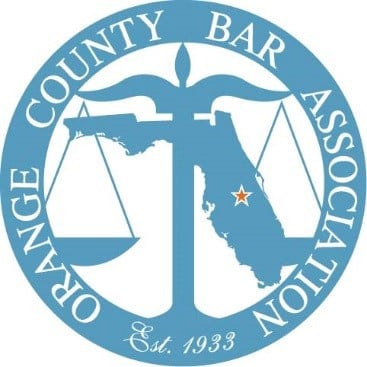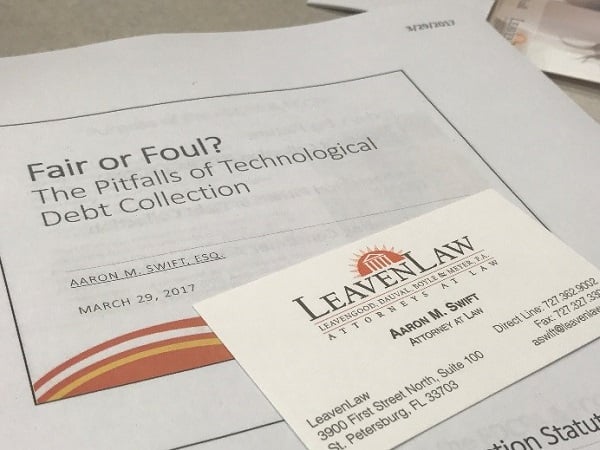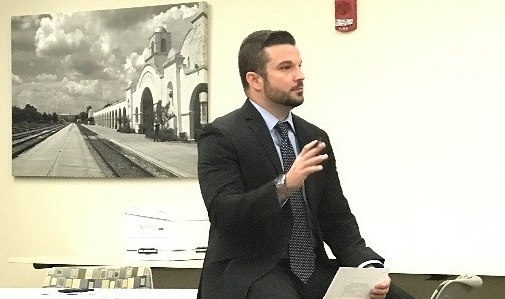 Recently, LeavenLaw Senior Associate, Aaron M. Swift, was asked to address members of the Orange County Bar Association, speaking to its membership regarding Technology and Consumer Law. Swift discussed the Telephone Consumer Protection Act (TCPA) and its development surrounding the use of automatic telephone dialing systems to place debt collection calls to consumers’ cellular telephones without prior express consent to do so. Mr. Swift also discussed recent developments in other consumer protection statues—the Florida Consumer Collection Practices Act ("FCCPA") and the Federal Fair Debt Collection Practices Act ("FDCPA")—and how consumer practitioners can better serve their clients and the community by pursuing consumer law claims.
Recently, LeavenLaw Senior Associate, Aaron M. Swift, was asked to address members of the Orange County Bar Association, speaking to its membership regarding Technology and Consumer Law. Swift discussed the Telephone Consumer Protection Act (TCPA) and its development surrounding the use of automatic telephone dialing systems to place debt collection calls to consumers’ cellular telephones without prior express consent to do so. Mr. Swift also discussed recent developments in other consumer protection statues—the Florida Consumer Collection Practices Act ("FCCPA") and the Federal Fair Debt Collection Practices Act ("FDCPA")—and how consumer practitioners can better serve their clients and the community by pursuing consumer law claims.
More specifically, Mr. Swift spoke about the TCPA’s application to debt collection calls made by creditors and debt collectors to a consumer’s cellular telephone: after the consumer either told the creditor or debt collector that they were represented by an attorney with respect to said debt; hired an attorney to defend them in a mortgage foreclosure lawsuit; filed for bankruptcy; or told the callers to stop calling but nonetheless still received auto-dialed debt collection calls. Under all four scenarios (in LeavenLaw’s opinion) such calls are unlawful and made in violation of the Telephone Consumer Protection Act, or the TCPA. The reason they are unlawful? Because all four scenarios effectively revoke consent regarding auto-dialed calls to a consumer’s cell phone. To that end, once an attorney represents a consumer with regard to the debt, other consumer protection statutes require that ALL direct debt collection communications with the consumer cease, which would include auto-dialed or robo-calls made to a consumer’s cellular telephone. For each call that is made by a creditor or debt collector to a consumer’s cell phone after said creditor or debt collector has been advised of attorney representation, the creditor or debt collector can be liable for $500.00 to $1,500.00 per call.
 Additionally, the TCPA provides for injunctive relief, which means that the consumer and his or her attorney can ask for a Court order requiring that the auto-dialed calls be stopped. Finally, if the calls are debt collection calls, the consumer likely has the ability to also bring a Florida Consumer Collection Practices Act or Fair Debt Collection Practices Act claim against the entity making the auto-dialed calls. The FCCPA and the FDCPA each provide for $1,000.00 statutory damages (per action; not per call), actual damages, punitive damages (under the FCCPA), as well as attorneys’ fees and costs if the consumer prevails. In the end, if a consumer is receiving auto-dialed calls to his or her cell phone after hiring an attorney or after demanding that the auto-dialed calls cease, then the consumer should have a strong TCPA case with potentially many thousands of dollars in damages.
Additionally, the TCPA provides for injunctive relief, which means that the consumer and his or her attorney can ask for a Court order requiring that the auto-dialed calls be stopped. Finally, if the calls are debt collection calls, the consumer likely has the ability to also bring a Florida Consumer Collection Practices Act or Fair Debt Collection Practices Act claim against the entity making the auto-dialed calls. The FCCPA and the FDCPA each provide for $1,000.00 statutory damages (per action; not per call), actual damages, punitive damages (under the FCCPA), as well as attorneys’ fees and costs if the consumer prevails. In the end, if a consumer is receiving auto-dialed calls to his or her cell phone after hiring an attorney or after demanding that the auto-dialed calls cease, then the consumer should have a strong TCPA case with potentially many thousands of dollars in damages.
*****************************
Aaron M. Swift is a Senior Consumer Law Litigation Associate and a member of National Association of Consumer Advocates ("NACA") and Florida Justice Association ("FJA") and regularly assists clients with consumer protection litigation under the TCPA, FCCPA, FDCPA, and the Fair Credit Reporting Act ("FCRA"). To learn more about your rights under these consumer protection statutes, please visit www.leavenlaw.com. For a free consultation, please call 1-855-LeavenLaw today.

